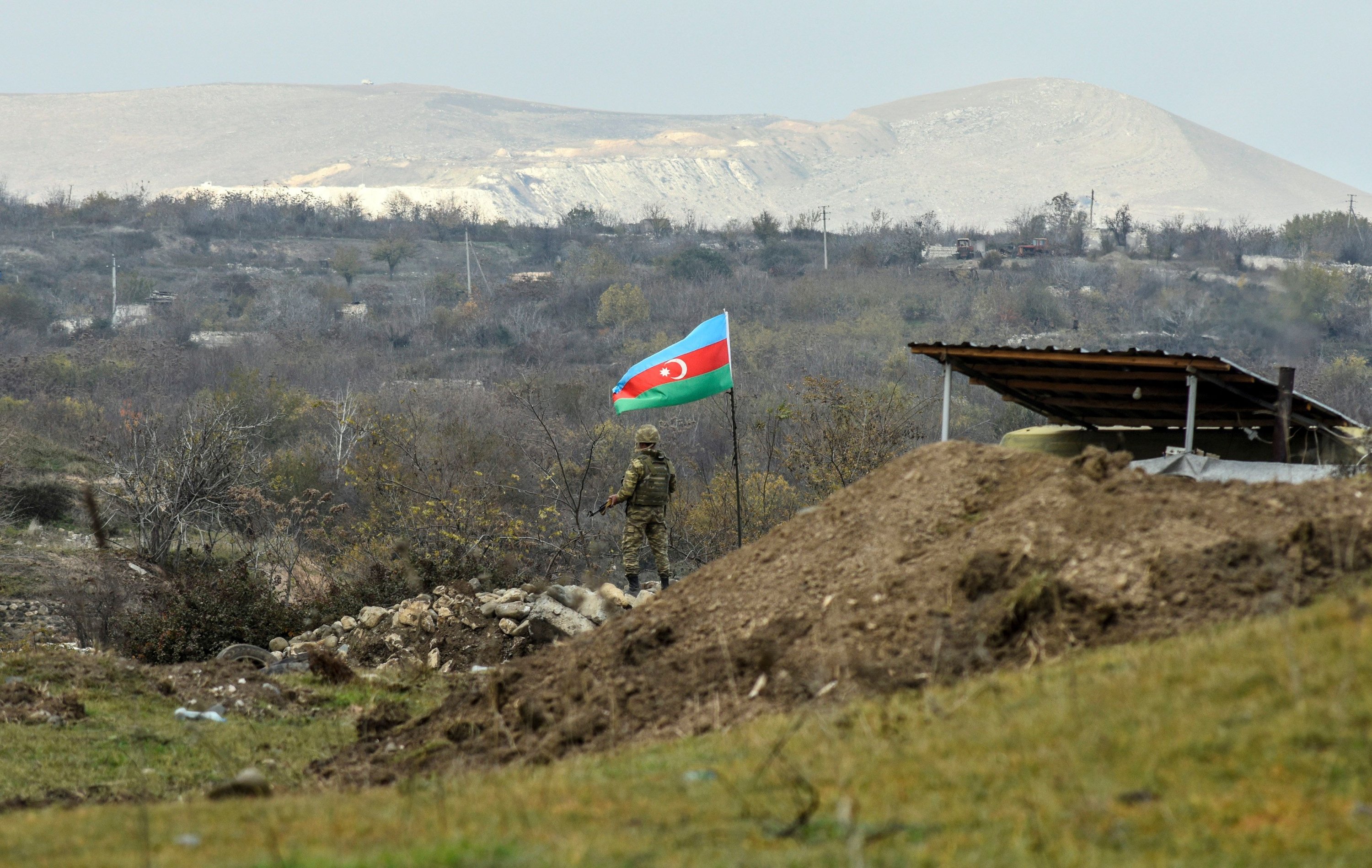President Ilham Aliyev believes there were chances to prevent the war between Armenia and Azerbaijan last year if the co-chairing countries of the Minsk Group – namely the USA, France, and Russia – had used their potential to force Yerevan to comply with UN Security Council Resolutions.
His comments came during the reception of the incoming UN Resident Coordinator in Azerbaijan on Tuesday.
In his remarks, President Aliyev said the Resolutions were a very promising gesture of support by the UN, however, they had no effect due to the lack of the implementation mechanism. Although three out of five permanent member-states of the UN Security Council (SC) are the co-chairs of the Minsk Group, he said the Group had failed to achieve any resolution to the Armenia-Azerbaijan conflict, while its 28 years of operation had been “the years of lost opportunities.”
“We wanted to resolve this issue peacefully. Speaking last year at the General Assembly just several days before the war, I was warning the international community that Armenia is preparing for war, that these were not just words for the sake of propaganda. That was a realistic analysis of Armenia’s behavior in the months prior to the war. And unfortunately, I was right,” President Aliyev said.
“If sanctions were imposed on Armenia on time, if Minsk Group co-chairs - three leading countries of the world used five percent of their potential to persuade or to force Armenia to withdraw its occupational forces, then the war would not have happened. Therefore, the responsibility for the war does not only lie on Armenia but on those who could not or did not want to force them to comply with international law," the Azerbaijani president added.
Armenia and Azerbaijan have long been at odds over the latter’s Karabakh (Garabagh) region. Following the Soviet Union’s dissolution in 1991, Armenia launched a military campaign against Azerbaijan that lasted until a ceasefire deal was reached in 1994. As a result, Armenia occupied 20 percent of Azerbaijan’s internationally recognized territories. Over 30,000 ethnic Azerbaijanis were killed, and one million others were expelled from their homes in a brutal ethnic cleansing policy conducted by Armenia.
The UN Security Council adopted four Resolutions in 1993 demanding the immediate cessation of hostilities, the immediate complete and unconditional withdrawal of the occupying forces from the Azerbaijani lands and the return of internally displaced Azerbaijanis to their native lands. Armenia's authorities, however, rejected to fulfill the Resolutions.
In the 1990s, the Organization for Security and Cooperation in Europe established the Minsk Group, a special mediation structure co-chaired by diplomats from Russia, the US and France. The main task of the Group was to help Armenia and Azerbaijan find a political end to the conflict. But the shuttle diplomacy of the co-chairs had been insufficient in fetching any solution to the conflict over decades. The authorities of Azerbaijan have repeatedly chided the Group’s activities, blaming it for not putting weight behind the efforts aimed at settling the conflict.
President Aliyev said Armenia's failure to fulfill the UN Resolutions and the lack of international pressure on Yerevan left Azerbaijan with no option, but to implement these resolutions itself within international law norms.
“Therefore, Azerbaijan implemented these resolutions itself within international law norms. We restored justice; we restored international law norms. We implemented the United Nations Security Council resolutions ourselves, and we acted in accordance with UN Charter. Chapter 51 recognizes the right for every country for self-defense. So, we used all the existing international instruments to restore our territorial integrity,” he said.
On September 27, 2020, the decades-old conflict between the two countries spiraled after Armenia’s forces deployed in the occupied Azerbaijani lands shelled military positions and civilian settlements of Azerbaijan. During the counter-attack operations that lasted 44 days, Azerbaijani forces liberated over 300 settlements, including the cities of Jabrayil, Fuzuli, Zangilan, Gubadli, and Shusha, from nearly 30-year-long illegal Armenian occupation.
The war ended in a tripartite statement signed on November 10 by Armenia, Azerbaijan, and Russia. Under the statement, Armenia also returned the occupied Aghdam, Kalbajar, and Lachin districts to Azerbaijan.







 Iran's senior military leaders described the drone and missile attack on Israel on April 14 night as “successful".
Iran's senior military leaders described the drone and missile attack on Israel on April 14 night as “successful".
 The number of evacuees from flooded areas in Kazakhstan has reached 97,852 people, including about 32,856 children since March 27.
The number of evacuees from flooded areas in Kazakhstan has reached 97,852 people, including about 32,856 children since March 27.
 Iranian President Ebrahim Raisi warned Israel that it would face a "real and extensive" response if it makes any "mistake" following Tehran’s missi...
Iranian President Ebrahim Raisi warned Israel that it would face a "real and extensive" response if it makes any "mistake" following Tehran’s missi...



